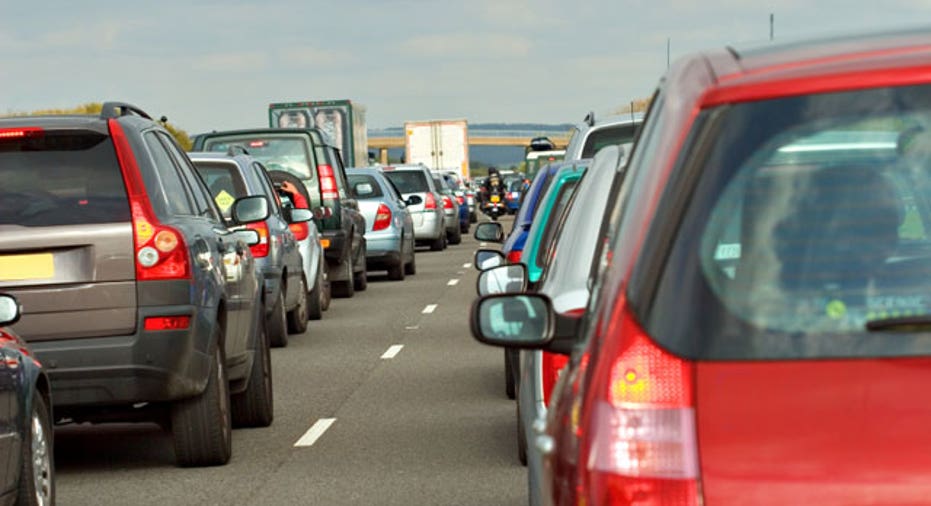Can High Gas Prices Force Down Car Insurance Rates?

In a perfect world, certain things would work in tandem, others in reverse, and we'd know what to expect. When fuel prices rise, people should drive less, right? And there would be fewer accidents and car insurance rates ought to go down, too.
Pump prices usually go up around Memorial Day and remain high throughout much of the peak summer driving season. Even though the year is young, prices nationwide are already spiking and it seems we can expect $4 a gallon or higher once the sun really starts to shine.
While there's no scientific evidence that the surge in gas prices is affecting driving habits, AAA representatives are hearing plenty of complaints and pleas for help. Their suggestions: Park the Expedition and drive the Civic, string errands together to drive less and use more mass transit.
"At current prices it's costing about $50 per month per car more than it was a few months ago," says Lon Anderson, a spokesperson for AAA Mid-Atlantic. "That's $100 a month for a two-car family."
Less Mileage, Better Auto Insurance Rates
It would be nice if every policyholder suffering pump pain could catch a break at the other end of this food chain − lower insurance rates. Unfortunately, there are a lot of variables in this equation.
First, gas and oil prices often move in random fashion. "We don't try to predict," says Avery Ash, manager of regulatory affairs for AAA. "The Egypt crisis made prices jump; Japan is making them decline."
Second, there are many other factors that make people drive more or less.
Driver miles hit a high point in 2005 and 2006 of about 3 trillion, according to the Federal Highway Administration, despite a spike in gas prices after 2005's Hurricane Katrina. Then mileage declined during the recession to close to 2.9 trillion and came roaring back in 2010 to near pre-recession levels. A study by the University of Michigan Transportation Research Institute showed a more than 7% decline in distance driven between October 2007 and September 2008, when drivers faced both hard times and high gas prices.
Making the Needle Move
But insurers don't react quickly to changes in driving habits and instead base their rates on more concrete numbers.
"We lower rates because of claims experience," says Dick Luedke, a spokesperson for State Farm. "If claims go down, so do rates." But claims are unpredictable, too. If we stay off the road there may be fewer accidents, but those accidents could be more severe. And if the Japanese crisis continues, the increasing cost of replacement parts may wipe out any insurance savings from fewer accidents.
"Most of the effects we're looking at here are just temporary," observes Steve Weisbart, chief economist for the Insurance Information Institute. He notes that auto insurance rates, and auto insurers, are already very competitive, as evidenced by the constant drumbeat of ads offering to save drivers money. If gas prices level off, "people will go back to driving the way they always do."
As far as insurers are concerned, "it will take a lot to make the needle move," Weisbart predicts.
Capitol Requests
Maybe we could rally our politicians for help. In fall 2008, New York Gov. David Paterson's insurance department issued a directive requiring insurance companies to "consider the impact of higher gas prices before setting insurance rates." As a result, Paterson said in a press release that many of the state's insurers "voluntarily" reduced or withdrew their requests for rate increases and what would have been an average 8% hike fell to 1%.
The original article can be found at Insure.com:Can high gas prices force down car insurance rates?



















